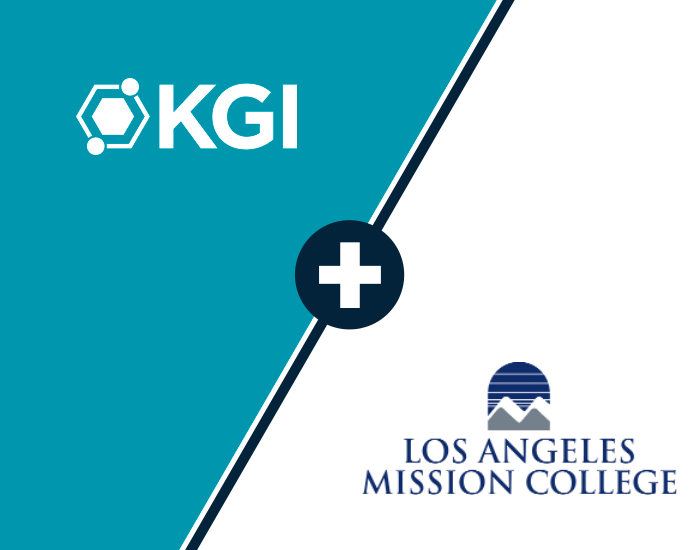City of Hope, a world-class biomedical research institution and comprehensive cancer center, has collaborated with Keck Graduate Institute (KGI) for programs such as the Master of Science in Translational Medicine and the Certificate in Bioscience Management. Recently, City of Hope and KGI have developed a Biomedical Innovation and Commercialization (BIC) program for City of Hope faculty that demonstrates how biomedical innovation and commercialization efforts drive patient benefit and fuel ongoing scientific discovery.
The inaugural BIC course is the first of its kind at City of Hope and the surrounding LA area. In collaboration with KGI, the workshop is tailored to City of Hope faculty members interested in commercialization. It will offer a unique opportunity to access an unparalleled set of experts from within City of Hope and other biomedical institutions.
City of Hope blends the best of academics, medical care, and biotech—a concept they call the “R&D hybrid.” This approach to R&D can mean that an innovative discovery might be spun out into a startup company or licensed to an existing biopharmaceutical company. The ultimate goal is speeding discoveries to patients by fast-tracking the commercialization of potentially life-changing new therapies.
The unique program is led by Dr. Ildiko Csiki, Chief Commercial R&D Officer at City of Hope, and Dr. Harlan Levine, President of Strategy and Business Ventures at City of Hope.
“The course is an additional way for City of Hope to enable our scientific faculty to engage in industry-like research efforts, and it provides opportunities for significant collaboration across the enterprise,” Csiki said.
“It also places City of Hope at the forefront of the institutions committed to innovation and entrepreneurship for the benefit of our patients.”
This three-day virtual training program, to be held February 18-20, will:
- Build familiarity with bioscience commercialization processes
- Develop opportunities for experts in research translation and commercialization to collaborate within City of Hope
- Offer hands-on experience to assess the commercial viability of a potentially lifesaving discovery made at City of Hope
"City of Hope faculty are at the forefront of some of the most exciting scientific breakthroughs in therapies for cancer and diabetes," said Shannon Braun, KGI's Senior Director of Corporate Partnerships. "City of Hope hopes to instill an innovative mindset when it comes to developing scientific discoveries such as insight into competition or potential market size. When you can successfully commercialize innovative science, not only are patients better off, but revenues come back to City of Hope, allowing the drug discovery cycle to continue."
To cover a lot of material quickly without overwhelming participants, the BIC program will take an active learning approach where participants will evaluate case studies of actual biomedical commercialization processes. Topics of these case studies include partnerships, intellectual property and patents, how to value technologies, and market forecasting.
"These case studies demonstrate how bioscience companies look at scientific discoveries from both a clinical value and an economic value approach," said Steven Casper, Henry E. Riggs Professor of Management, who helped design the program's curriculum.
The program will also feature short lectures taught by KGI faculty on topics related to bioscience business and commercialization relevant to City of Hope’s faculty. Going along with the program's interactive aspect, small teams of faculty participants will work together to develop a preliminary commercialization analysis of a technology emerging from their lab.
Subject matter experts from City of Hope in the areas of commercialization, intellectual property, and partnerships will give short talks and help mentor the commercialization project teams. On the last day of the program, each team will deliver a short presentation on their commercialization opportunity analysis.
There will also be panels focusing on collaboration and entrepreneurship featuring internal and external experts interspersed between the presentations to allow faculty to hear directly from these experts that have been successfully involved in parts of the innovation and commercialization process.
Although the costs associated with the drug discovery pipeline are largely funded by government associations such as the National Institutes of Health, partnerships and collaborations with private companies also provide an important source of revenue. One goal of the program is to help those immersed in the world of research feel more at ease when navigating these partnerships.
"We don't want to make these faculty into commercial people," Casper said. "We want them to learn how to think about their research in a way that can allow them to be more effective in going from bench to bedside given that commercialization is one of the primary mechanisms by which that translation is accomplished."
In the future, City of Hope and KGI may develop additional programs like this one that offers a short introduction to a topic in broad strokes.
"Once the interest is piqued, we could consider a whole series of courses that might lead to an academic certificate, enticing PIs to come back for deeper subject knowledge," Braun said. "We could also pivot this type of curriculum to other research-intensive institutions that are similar to City of Hope.”
